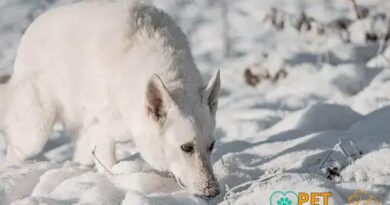O que é Nervosismo
What is Nervousness in Dogs?
Nervousness in dogs is a behavioral condition characterized by anxiety and unease. It can manifest in various ways, including excessive barking, pacing, or hiding. Understanding what nervousness means for your canine companion is crucial for providing the right support and care.
Signs of Nervousness in Dogs
Common signs of nervousness in dogs include trembling, drooling, and a tucked tail. Some dogs may also exhibit destructive behavior, such as chewing furniture or digging. Recognizing these signs early can help you address the underlying issues contributing to your dog’s anxiety.
Causes of Nervousness in Dogs
Nervousness in dogs can stem from various factors, including genetics, past trauma, or lack of socialization. Environmental changes, such as moving to a new home or the introduction of new pets, can also trigger anxiety. Identifying the root cause is essential for effective treatment.
Impact of Nervousness on a Dog’s Health
Chronic nervousness can lead to significant health issues in dogs, including gastrointestinal problems and a weakened immune system. Stress can also exacerbate existing health conditions, making it vital to manage your dog’s anxiety to ensure their overall well-being.
How to Help a Nervous Dog
To help a nervous dog, create a safe and calm environment. Establishing a routine can provide a sense of security. Additionally, consider using calming aids, such as pheromone diffusers or anxiety wraps, to help soothe your pet during stressful situations.
Training Techniques for Nervous Dogs
Positive reinforcement training techniques can be effective in helping nervous dogs. Gradual desensitization to anxiety-inducing stimuli can help your dog build confidence. Working with a professional dog trainer or behaviorist may also be beneficial for more severe cases.
When to Seek Professional Help
If your dog’s nervousness is severe or persistent, it may be time to consult a veterinarian or a certified animal behaviorist. They can assess your dog’s behavior and recommend appropriate treatment options, which may include medication or specialized training programs.
Preventing Nervousness in Puppies
Early socialization is key to preventing nervousness in puppies. Exposing them to various environments, people, and other animals can help them develop confidence. Consistent training and positive experiences during their formative months can significantly reduce the likelihood of anxiety later in life.
Understanding Your Dog’s Body Language
Understanding your dog’s body language is crucial in recognizing signs of nervousness. Pay attention to their ears, tail position, and overall posture. A dog that is feeling anxious may avoid eye contact or display submissive behaviors, indicating they need reassurance.
The Importance of Patience and Understanding
Dealing with a nervous dog requires patience and understanding. Each dog is unique, and their journey to overcoming anxiety may take time. Providing consistent support and love can help your furry friend feel more secure and less anxious in their environment.



